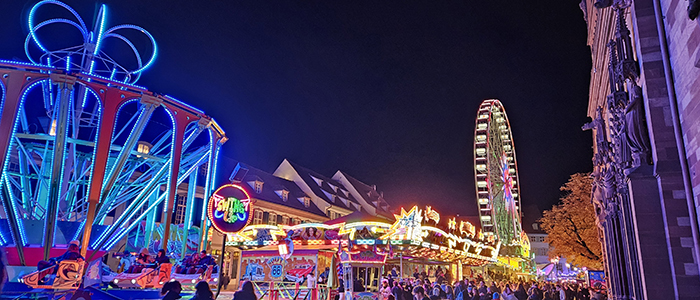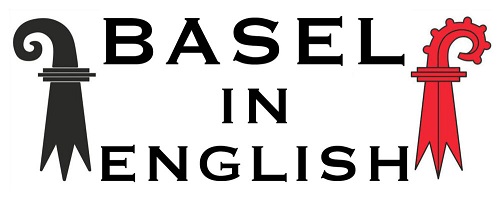A brief History of the Baseler Herbstmesse.
This years dates: Sat, Oct 28, 2023 – Sun, Nov 12, 2023
Fun with a long standing tradition:
The history of Switzerland’s amusement fair stretches way back to the Middle Ages.

The Council of Basel, between 1431 and 1448 managed to bring enormous economic and population growth to the city. When it ended, in 1449, Basel found itself facing a crisis. The Council then decided to plan an annual fair with the aim of kick-starting the economy again. As a “Free City” of the German Nation, as a constituent of the Holy Roman Empire, Basel needed the blessing of the Emperor of the German Königreich to hold such a fair.
Pope Pius II, kindly disposed towards Basel, was meant to send the German Emperor Friedrich III a letter of recommendation. Although this letter was written it got lost in transit. This meant a new initiative was required. Several decades later, this time on the part of Basel’s mayor, Hans von Bärenfels. His endeavours finally met with success, and Basel received a deed of authorisation bearing the emperor’s seal on 11 July 1471. This deed guaranteed the city of Basel the right to hold a fair “for all time”.
Basel made full use of this authorisation by hosting and staging a lively and fun-filled fair, where merchants sold their goods, people ate and drank to their hearts content, and jugglers and singers showed off their talents. Over the centuries, the attractions have developed from simple mazes, “spinning barrel” rides and ghost trains to today’s free-fall tower. The fair’s iconic attraction – the Big Wheel at Münsterplatz – stood a proud 20-meters high in the 1970s. Today, it’s three times as high, at 60 meters. And for centuries, “Mässmogge” and “Maagemòrsèlle” have been delighting those with a sweet tooth – young and old alike – at Petersplatz.
Insider Local knowledge:
Each year, the opening of the Herbstmesse is signaled by the ringing of the bells of the Martinskirche at exactly 12 o’clock and is watched by hundreds of spectators. From 2023, it will be Florian von Bidder who will keep this cherished tradition alive and ring the bells. In return, he receives – like Franz Baur, who rang the bells before him – a new pair of gloves. But he will not get both gloves at the same time! He receives one glove before he rings the bell, and the other once the bells marking the end of the fair have been rung. Then, and only then, can Franz Bauer enjoy his reward – a touch of caution on the part of the fair’s traditionally Protestant Commissioners. That, too, is a typical Basel idiosyncrasy.
— Adapted from the History of the Herbstmesse Basel by Basel Tourismus.
